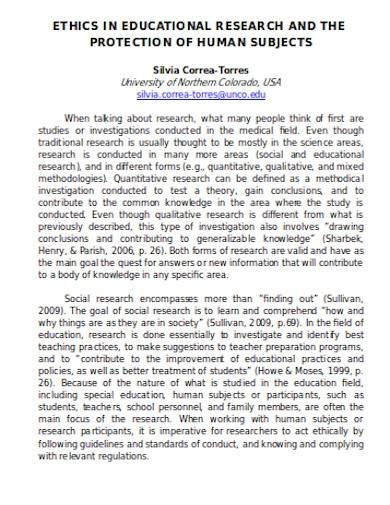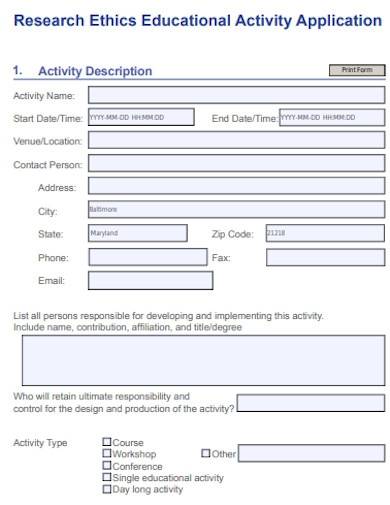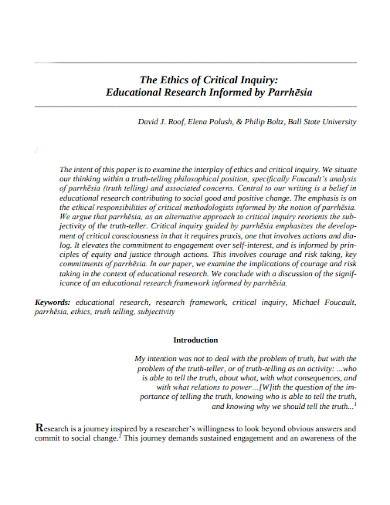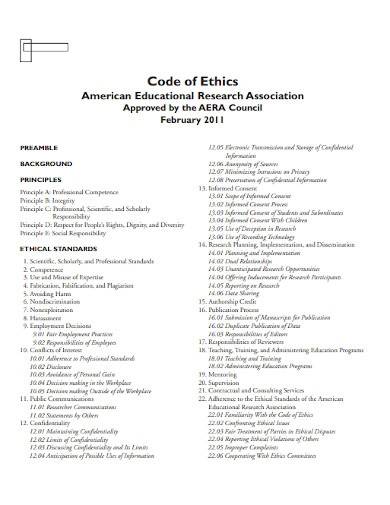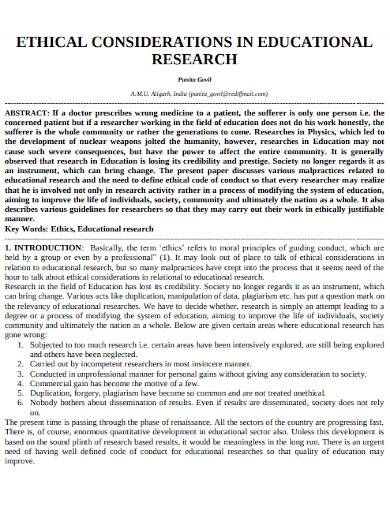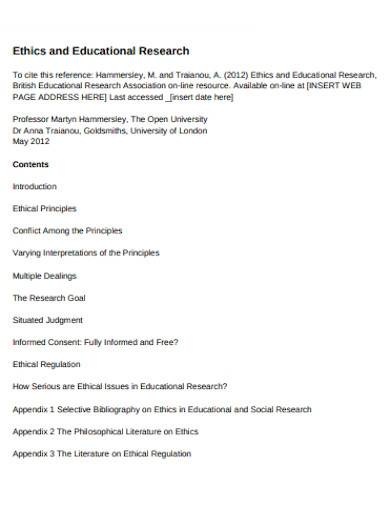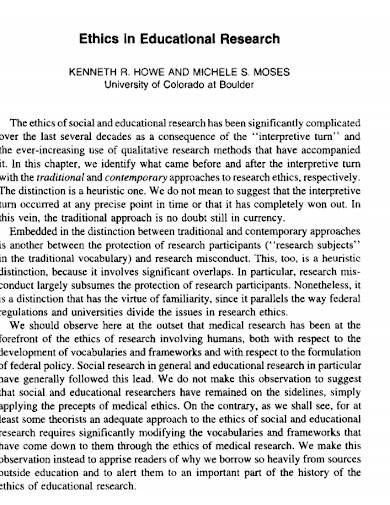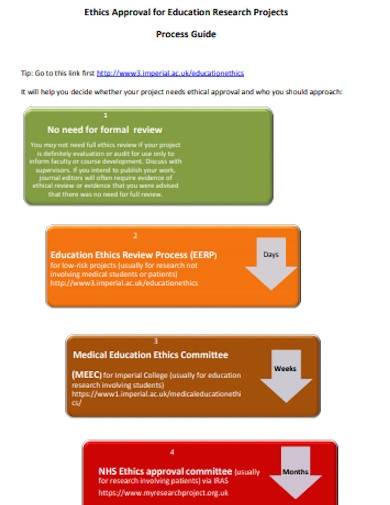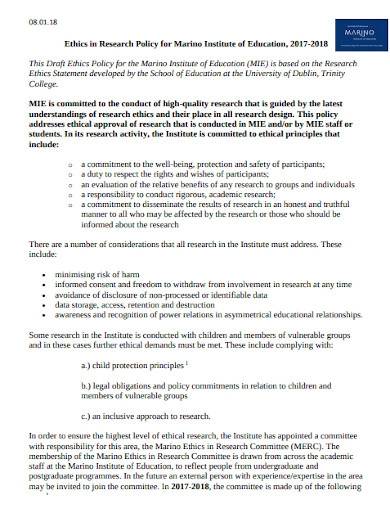Ethical considerations are particularly important in educational research, as the research often involves vulnerable populations, such as children, and may have a direct impact on educational policy and practice. As such, researchers must carefully consider the potential risks and benefits of their research and ensure that their methods are respectful, transparent, and accountable.
FREE 10+ Educational Research Ethics Samples & Templates
1. Educational Economic Research Ethics
2. Ethics in Educational Research Template
3. Research Ethics Educational Activity Application
4. Educational Research Analysis Ethics
5. Educational Research Code of Ethics
6. Ethical Consideration in Educational Research
7. Ethics and Educational Research
8. Ethics in Educational Research Sample
9. Ethics Approval for Education Research
10. Educational Research Ethics Policy
What is Educational Research Ethics?
Educational research ethics refers to the set of principles and guidelines that govern the conduct of research in the field of education. The purpose of these ethics is to ensure that research is conducted in a manner that is morally and ethically responsible and that the rights and dignity of all participants are respected.
How To Make Educational Research Ethics?
Educational research ethics covers a range of issues, including the use of human and animal subjects, informed consent, confidentiality, privacy, data collection and analysis, dissemination of findings, and conflicts of interest. It also involves adhering to legal requirements, institutional policies, and professional codes of conduct. To make educational research ethics, it is important to follow a set of guidelines and principles that ensure that the research is conducted ethically and responsibly. Here are some steps to follow:
Step 1- Develop Research Proposal
The research proposal should clearly state the purpose of the research, the research questions, and the methodology that will be used. It should also include a section on ethical considerations, outlining the steps that will be taken to ensure that the research is conducted ethically and responsibly.
Step 2- Ethical Approval
Before beginning the research, it is important to obtain ethical approval from an institutional review board or ethics committee. This involves submitting the research proposal, along with a detailed description of the ethical considerations, for review and approval.
Step 3- Informed Consent
Informed consent is a crucial aspect of ethical research. Participants should be fully informed about the purpose of the research, the procedures involved, and any potential risks or benefits. They should also be informed that they have the right to withdraw from the study at any time.
Step 4- Confidentiality and Privacy
Researchers should ensure that participants’ personal information is kept confidential and that their privacy is not violated in any way. This means that participants should not be identified in any published research without their explicit consent.
What are some of the key ethical principles and guidelines that should be followed in educational research?
Some key ethical principles and guidelines include obtaining informed consent from participants, protecting confidentiality and privacy, collecting and analyzing data responsibly, disseminating findings responsibly, and disclosing any potential conflicts of interest.
What is informed consent, and why is it important in educational research?
Informed consent is a process by which participants are fully informed about the purpose of the research, the procedures involved, and any potential risks or benefits, and are given the opportunity to consent or decline to participate. Informed consent is important in educational research because it ensures that participants understand what they are consenting to, and that they are aware of any potential risks or benefits associated with their participation.
What is the role of an institutional review board (IRB) in educational research?
An institutional review board (IRB) is a committee that is responsible for reviewing research proposals to ensure that they meet ethical standards and protect the rights and welfare of participants. IRBs are typically made up of researchers, community members, and representatives from the institution where the research is being conducted. IRBs play an important role in ensuring that research is conducted ethically and responsibly.
Ethical considerations are essential for maintaining the integrity and credibility of educational research. By following key ethical principles and guidelines, researchers can ensure that the rights and welfare of participants are respected, and that the data collected is accurate and reliable. Ultimately, ethical considerations help to build trust between researchers and participants, as well as between researchers and the wider community, which is essential for advancing knowledge and improving educational practices.
Related Posts
FREE 10+ Content Validity Samples & Templates in PDF
FREE 10+ Construct Validity Samples & Templates in MS Word | PDF
FREE 10+ Code of Human Research Ethics Samples & Templates in MS Word | PDF
FREE 10+ Biography Research Report Samples and Templates in PDF
FREE 10+ System Documentation Samples & Templates in MS Word | PDF
FREE 10+ Process Document Samples & Templates in MS Word | PDF
FREE 10+ Action Research Samples & Templates in PDF
FREE 10+ Longitudinal Research Samples & Templates in PDF | MS Word
FREE 10+ Causal Research Samples & Templates in MS Word | PDF
FREE 10+ Client Discovery Samples & Templates in MS Word | PDF
FREE 10+ Null Hypothesis Samples & Templates in MS Word | PDF
FREE 9+ Product Knowledge Samples & Templates in PDF
FREE 10+ Software Documentation Samples & Templates in MS Word | PDF
FREE 10+ Exploratory Research Samples & Templates in PDF | MS Word
FREE 10+ Experimental Research Samples & Templates in MS Word | PDF


